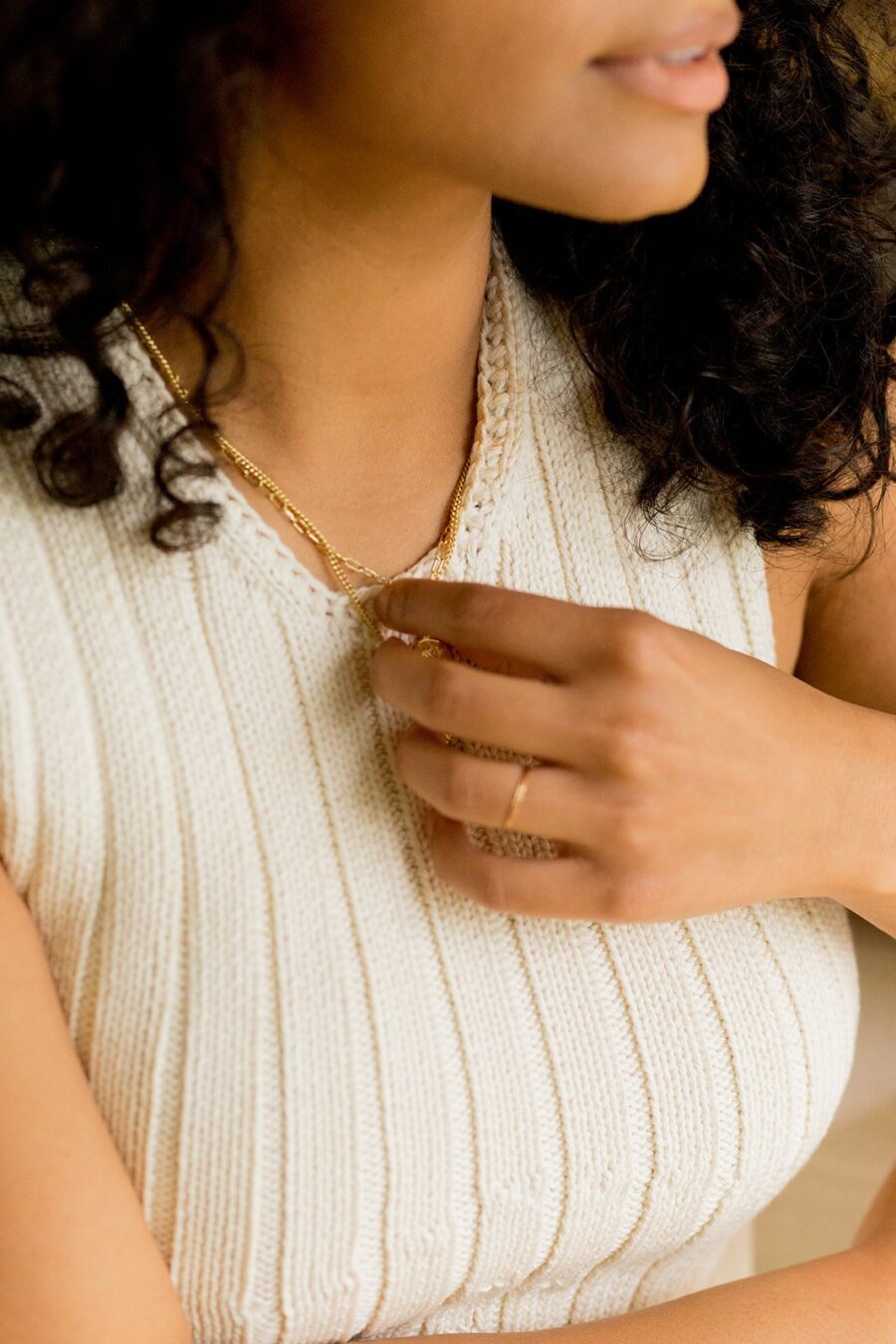
How I’m Embracing My Multi-Racial Background (Even When I Don’t Feel Connected To It)
*Apologizes To Ancestors*
My mom’s parents were born on Puerto Rico and she in the Lower East Side of Manhattan. My dad’s grandparents were born on Barbados and he on Staten Island. And I was born in a suburb of New Jersey that 20 years earlier had become the first in the nation to voluntarily desegregate its public schools. It would be decades before I realized that having a diverse group of friends in adolescence—half-Nicaraguans! A Jewish Egyptian! Two different Trinidadian boyfriends!—was a unique experience, if not a legitimate rarity.
That upbringing cultivated in me a sense of equality, safety, and tolerance. It gifted me the ability to feel comfortable in diverse spaces. Yet, I tend to view my rearing as a double-edged sword. In being lucky enough to embrace others in their wholeness, I fear I might have let pass the opportunity to actively develop and nurture my own.
“When you’re one-of-one, you can feel like ‘too much.’ When you’re one of many, you can feel like ‘not enough.’”
I wasn’t taught Spanish as a first language; my mother contends that trying to simultaneously tutor my then-31-year-old father would have been too large a task. Now I’m still far from being fluent and too embarrassed to try out loud, even if encouraged. We also never visited Barbados so, until I head there in my own adulthood (it’s looking like next year! 🤞🏽), my anecdotal references to inquiring minds have always started and ended with, “It’s where Rihanna’s from.”
Belonging to many things can sometimes feel like belonging to nothing. When you’re one-of-one, you can feel like “too much.” When you’re one of many, you can feel like “not enough.” Both, when left uncared for, can lead to feelings of shame, guilt, and insecurity. So here are a few ways I’ve learned to embrace my cultural background (and some tips from others with similar experiences!), mixed or otherwise, if I’m ever feeling disconnected.
We Can Embrace The Arts…
As a child, I remember it being a given that I would bring two dishes to whatever multicultural potluck my school was hosting that year. Now, I feel a wave of jealousy whenever I come across someone who can make Bajan coconut bread or Puerto Rican piñon from memory. (Alternatively, I’ve spent the last few years in Los Angeles hunting for a pizza slice that can rival New York’s; not a complete waste of time, but not a salve to my culture crisis either!)
“Cooking can bolster both connection and community.”
According to Los Angeles-based licensed marriage and family therapist Saba Harouni Lurie, a first-generation Iranian American, cooking can bolster both connection and community. “Learn how to prepare food from your family’s culture and share it with people in your life,” she says. Doing so not only helps Lurie feel connected to her loved ones despite their race or ethnicity, but to her grandmother who prepared similar meals for her when she was growing up.
Lurie also suggests that we explore media, like music, movies, podcasts, and books, from our cultures of origin.
…Or Not!
But if the academic approach of deep-diving into resources and recipes doesn’t feel like the right fit for us, that’s fine, too.
When best-selling author and award-winning journalist Celeste Headlee—who identifies as Black, white, Jewish, and practicing Buddhist—was trying to understand her cultural identity, she did a lot of research. “But [what] I really fell back on [were] the things that my family did and the things that my family liked,” says Headlee. “I embraced the traditions that I had known growing up, and in the end that’s what served me best.” It’s what made her feel most authentic.
“Language is not always the sole and mighty source of culture; it can also be our uniquely accumulated experiences.”
Rather than adopting practices because they’re what we’re told our cultural identities are, Headlee says pursuing the traditions that feel familiar to us, and expanding on them to make them our own, is just as fulfilling.
A few years ago, upon receiving an invite to a Marc Anthony concert (who I love!), I panicked and spent days trying to learn every Spanish lyric so as not to stick out like a sore, mumbling thumb. (Impossible, by the way; he has, like, 12 albums.) The plans fell through, but the anxiety was telling. Because I grew up at the whim of my parents’ music selections. A daily mix of Motown, alt-rock, jazz, soul-funk and, yes, salsa. I spent years as a genreless music journalist and am still fielding playlist-making requests from friends so, if anything, I’ve long considered my inherited eclecticism a blessing. Let this be a reminder that language is not always the sole and mighty source of culture; it can also be our uniquely accumulated experiences.
We Can Make Friends (In Person And On Pages)
In media studies, representation is the way aspects of society are presented to audiences. And for marginalized communities, we’re seeking—demanding, really—that those depictions be accurate, adequate, and proportional; that they’re “authentic, fair, and have humanity.” It’s important when someone “looks like us.”
But I’m aware that crossing paths with, or seeing in media, my exact ethnic makeup is rare; I’ve had exactly one person guess it on the first try (and he was drunk, so I’ve since assumed it was some sort of superpower). Waiting for such a fortuitous moment is a wasted opportunity.
“We can widen our definition of identity and embrace those whose experiences are mutual, not identical.”
Instead, we can widen our definition of identity and embrace those whose experiences are mutual, not identical. Seeking out the words and works of fellow bi-racial and multiracial people can be beneficial. Headlee found clarity in books written by mixed-race authors (“I let them guide me in terms of what had worked for them”) and Lurie, often the only Iranian American in the racial affinity groups she participates in, says that expressing to them her feelings of being “between both worlds” makes her feel validated and less alone.
Says Headlee, once we realize how incredibly diverse the world is, we might realize that our own unique experiences are just as authentic as others’.
We Can Have Compassion For Ourselves
Three of my four grandparents have passed. And my surviving grandfather has since left the New York project building I spent every other weekend in as a child and moved back to his homeland of Puerto Rico.
Whenever we talk on the phone his accent is stronger than I remember, and I get frustrated with myself for not being eloquently equipped with the language he feels most comfortable speaking. It immediately makes me want to visit, to recreate the summer I spent in San Sebastián when he taught me how to pick locks and knock fruit from trees. I want to ask questions and to document his everyday.
While I’m fortunate enough to still have that opportunity, we must remember that not everyone does. Iran has changed so much since Lurie’s family emigrated, so being able to return to and connect with the country they once knew is, in some ways, not an option for her. “When I consider that,” she says, “it contextualizes and validates many feelings of disconnection I may be experiencing.”
Not everyone has access to their past; does that make them less worthy of exploring and establishing their identity? Of course not. If anything, it’s a greater reason we should be looking inward instead of elsewhere for answers.
“There is no checklist of things that you have to do and experience in order to be a real Black person or a real Jewish person or whatever your cultural background may be,” says Headlee; who we are, how we were raised, our traditions, what we like, what has meaning to us—that is our cultural identity.
“Not everyone has access to their past; does that make them less worthy of exploring and establishing their identity? Of course not.”
There is no one way to connect to our past. A surefire way to not, however, is to debilitate ourselves with a self-imposed pressure to be “more.”
Our existence is enough. We can inherit and adapt. We are beginnings, not ends.
RELATED READING
Danielle Cheesman was born and raised in New Jersey, where she lived until moving to Philadelphia to study journalism at Temple University. She has spent her years writing and developing editorial visions for music, art, and lifestyle brands. Now residing in Los Angeles, you can usually find her taking pictures, making playlists, or cuddling her pup. Say hi on Instagram!
